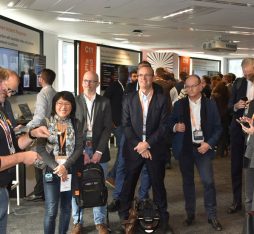• A new AI winter would be perceived as a setback, but it could also encourage the development of more responsible and ethical AI.
• AI is shaking up the world of work, especially legal departments, where the AI Act has redefined roles played by corporate lawyers and data protection officers (DPOs) who now advise technical teams.
In IA du mythe à la réalité [“AI: from myth to reality”], you aim to present a more nuanced picture of artificial intelligence. What is wrong with our current perception of AI?
There is not enough thought about AI and there are relatively few books that deal with the problems that it may cause. We tend to focus on dystopian visions of the future, while forgetting the challenges we face today. AI is an incredible technology, but excessive enthusiasm for AI overlooks certain issues, such as the lack of representation of certain cultures and its ecological impact. I’m not anti-technology, but we don’t question the wisdom of recourse to AI enough
One advantage of AI is that it can reduce the amount of time devoted to tedious tasks without necessarily taking away jobs
Do you believe we may soon see cuts in funding for artificial intelligence research that will pave the way for another AI winter?
AI kicked off as a research discipline in 1956, and there have been several funding highs and lows since then — the lows being AI winters. In the past, certain advances have been stopped in their tracks in the wake of hyped expectations, and with fears about professions being replaced and the negative social impact of AI, it is possible that we could see a new AI winter. It would be a pity, but at the same time, it could lead to restrictions on development to ensure that it is solely focused on responsible AI.
You believe that the AI Act is already having an impact on companies…
With the new European rules and the AI Act, we are seeing the emergence of more and more lawyers specializing in AI. Some will develop skills in this area to broaden their expertise, but it is likely that legal supervision of AI will become a profession in its own right. We are talking about the application of complex texts, and technical teams need support to help them cope with these regulations. Along with upstanding DPOs, companies must also find a business model that complies with these rules. For example, when creating a new functionality, the question of added value should also be posed in terms of legal compliance. Ultimately, the aim of this legislation is to bring greater transparency, and, in the long term, everyone stands to benefit from that.
How can AI enhance our relationship to work?
One advantage of AI is that it can reduce the amount of time devoted to tedious tasks without necessarily taking away jobs. In programming, for example, AI can be used to generate code, but only under supervision and the code has to be checked. For writing, there are tools like Antidote to provide suggestions on rewording. Although their results need to be validated by humans, tools of this kind do take some of the labour out of certain forms of writing. However, AI is having a larger impact on certain creative professions. I have already seen people, notably translators, abandon their professions because of AI, and I have also remarked a similar impact on illustrators. In publishing for example, AI generated book covers are increasingly common, but I believe this trend will be short-lived. The AI-generated creations are often of poor quality, and in the future, we will probably rely on collaboration with AI rather than replacing whole jobs with it.
Can you talk about the limitations of studies that warn of the end of work?
Scientific studies on AI’s impact on work often focus on a limited number of jobs, often highly codified professions such as translators, secretaries, manual workers, etc., and then draw generalized conclusions. However, every job is unique. For example, if you question hairdressers about what their work involves, you will likely obtain highly varied answers. The issue is that without a standard definition of what a job entails it is difficult to effectively study if and how it should be automated. With this in mind, we should assume that certain tasks and not entire professions will likely be taken over by AI.
Data Protection Officer: in Europe, a DPO is a specifically appointed member of staff whose role is to ensure corporate compliance with the General Data Protection Regulation (GDPR).













